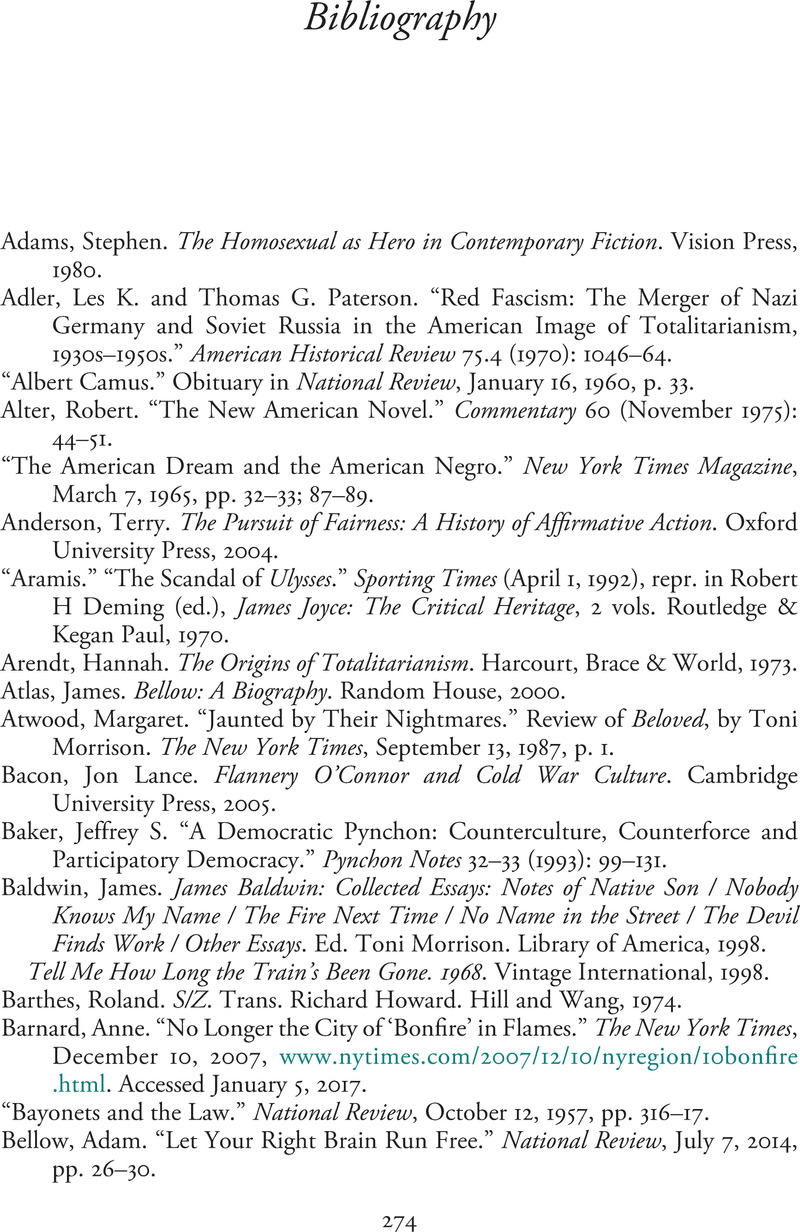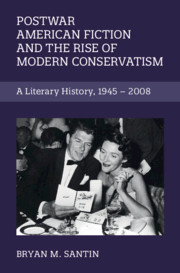Book contents
- Postwar American Fiction and the Rise of Modern Conservatism
- Cambridge Studies in American Literature and Culture
- Postwar American Fiction and the Rise of Modern Conservatism
- Copyright page
- Dedication
- Contents
- Acknowledgments
- Introduction
- Chapter 1 US Literature and the Modern Right at Midcentury
- Chapter 2 The Conservative Movement’s Foundational Fictions
- Chapter 3 The Strongbox of Custom
- Chapter 4 Movement Conservatism, Neoconservatism, and the New Right
- Chapter 5 The American Novel and the Reagan Revolution
- Epilogue: The Curious (Conservative) Case of Marilynne Robinson
- Notes
- Bibliography
- Index
- Cambridge Studies in American Literature and Culture
- References
Bibliography
Published online by Cambridge University Press: 27 March 2021
- Postwar American Fiction and the Rise of Modern Conservatism
- Cambridge Studies in American Literature and Culture
- Postwar American Fiction and the Rise of Modern Conservatism
- Copyright page
- Dedication
- Contents
- Acknowledgments
- Introduction
- Chapter 1 US Literature and the Modern Right at Midcentury
- Chapter 2 The Conservative Movement’s Foundational Fictions
- Chapter 3 The Strongbox of Custom
- Chapter 4 Movement Conservatism, Neoconservatism, and the New Right
- Chapter 5 The American Novel and the Reagan Revolution
- Epilogue: The Curious (Conservative) Case of Marilynne Robinson
- Notes
- Bibliography
- Index
- Cambridge Studies in American Literature and Culture
- References
Summary

- Type
- Chapter
- Information
- Postwar American Fiction and the Rise of Modern ConservatismA Literary History, 1945–2008, pp. 274 - 289Publisher: Cambridge University PressPrint publication year: 2021



